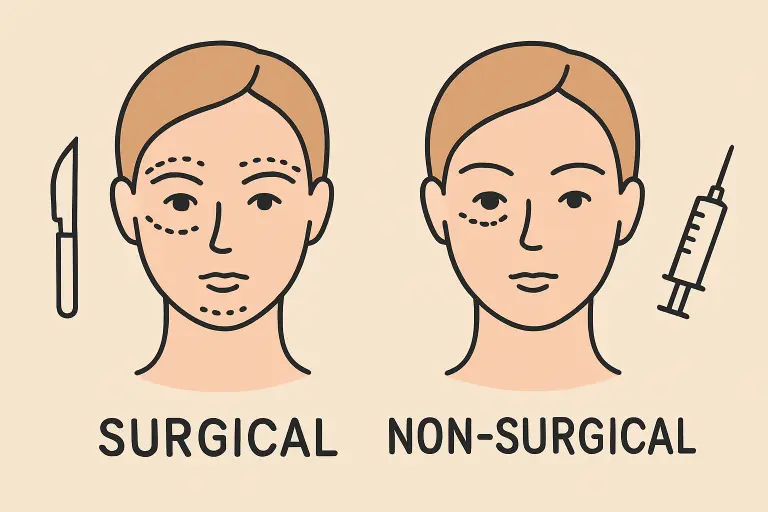Clinical mental health counselors play an important role in promoting healthy eating behaviors, body positivity, and self-acceptance. Through promoting body positivity and self-acceptance, clinical mental health counselors can help clients maintain good mental health. By encouraging clients to accept themselves rather than attempting to conform to social norms, clinical mental health counselors can help clients appreciate themselves for who they are.
Table of Contents
What Is Body Image?
Body image reflects an individual’s perception of their body such as their shape, size, and appearance. It also involves a person’s general attitude toward the body, including their feelings, thoughts, and beliefs about health and image. These attitudes are often influenced by family and friends, society, the media, and culture. While most people have some aspect of their body they do not like; this does not necessarily mean they have a negative body image, as in many cases those perceived flaws do not cause anxiety or distress. A negative body image comes when those perceived flaws cause anxiety or even disgust, leading to distress, extreme diets, body modifications, and isolation. When someone has a problem with body image, a counselor can help by finding strategies to help boost self-acceptance and body confidence.
Choosing Strategies
Mental health counselors have an array of strategies that they can use when working with clients with poor body image. These strategies are often tailored to the individual. They learn these strategies during their training and hone them through further learning, research, conversations with colleagues, and practical experience. If helping people reach a stage of self-acceptance and better mental well-being is something that interests you, a career as a clinical mental health counselor could be a fulfilling path.
Usually, a master’s degree is needed to work as a mental health counselor. Most master’s courses allow students to enroll with a bachelor’s degree in any field. Online degrees are becoming increasingly popular, with their accessibility and flexibility regarding existing financial and personal commitments. American International College is one institution that offers an accredited and reputable Online Master’s Degree in Mental Health Counseling. The program can be studied full- or part-time and gives students all the theory, research, and clinical skills needed to become advanced counselors, and ensures students graduate with abilities that ensure they become fully licensed.
Below are some strategies that counselors often use to help clients.
Encourage Self-acceptance
People with poor body image can often feel that the only way to improve it is to change their body whether through extreme diet, expensive treatments, or body modifications. However, a counselor can help a client realize that they can improve their image without risky or expensive behaviors and treatments. The first step is for the counselor to understand why their client has a negative body image.
There are a number of reasons why a person might develop a negative body image. A common reason is that the individual has experienced bullying at some stage in their lives. The media too can cause problems, often portraying an idealized form of perfection that can leave some feeling inadequate. The popularity of social media has put ourselves and our lives on display like never before, which can also create body image problems. A social media picture that does not receive enough ‘likes’ may cause considerable anxiety, while online trolls may make negative comments that further damage an individual’s self-esteem. At the same time, that person may see the perfect pictures other people are posting and not understand that these pictures may be heavily filtered or portray only a brief, idealized moment in what is otherwise a much more ordinary life. Clinical mental health counselors consider all of these aspects to identify the cause of a client’s problem. Once the counselor has identified the root cause, they can help their client find strategies to manage their anxieties around body image.
Encourage Self-compassion
An important role of a counselor is to help a client learn to practice self-compassion. Counselors play a key role in helping clients understand that their self-worth is not tied to their image and that just because they do not embody the idealized societal norms of body image, it does not mean that they do not have worth. By encouraging self-compassion, counselors can take the focus of their client’s attention away from negative ideas of body image and onto positive aspects of their lives, such as success in their work or positive relationships with family and friends. CBT (cognitive behavioral therapy) can be useful in helping the client identify when they are being negative about themselves and instead use that time to focus on the positives.
Encourage A Good Diet And Exercise
It is crucial for clients with poor body image to manage their diet in a healthy way. Too often people resort to extreme diets that leave them feeling miserable and fail to deliver long-term results. Similarly, negative habits regarding exercise can lead clients to feel self-conscious and cause them to compare their bodies with those around them.
However, a counselor can encourage a client to eat a more balanced diet that will make them feel better in themselves, without a focus on weight. Clients can also be encouraged to have a healthy attitude toward food, finding healthy meals they enjoy and not feeling guilty about the occasional treat.
Exercise too is good for both physical and mental health, and again, it is a good idea for the client to find something they enjoy. Becoming exhausted by running in skin-tight Lycra is unlikely to help someone with a poor body image. But a long walk in a park or in the countryside with family or friends brings the benefits of fresh air, nature, social interaction, and exercise that will help both physical and mental health. Encouraging a client to find a setting they feel comfortable in to exercise, for example a woman-only swimming session, is key to them getting the body positivity benefits of exercise.
Positive And Realistic Attitudes
It is important for the counselor not to minimize or dismiss the distress a client feels over their body image, but instead to find ways to gradually address the problem. This can be done through positivity and without putting others down. There is unlikely to be a quick fix to body positivity issues, but through identifying the root causes of problems, and finding ways to encourage clients to think more positively and take sustainable actions that they enjoy, mental health counselors can help make a real difference.































































































































































































































































































































































































































































































































































































































































































































































































































































































































































































































































































































































































































































0